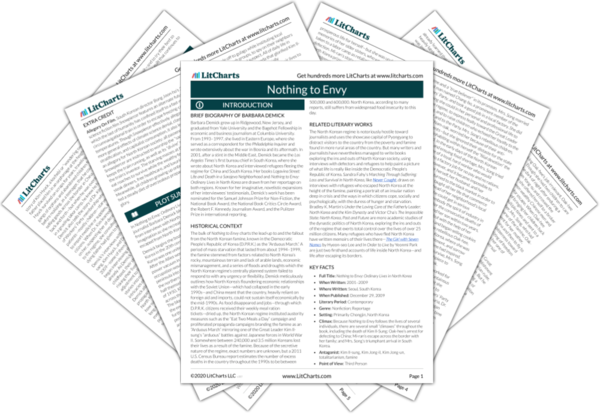Hyuck, like all North Koreans, was taught that capitalist greed and help from outsiders were two things that could not be abided. Hyuck, however, wasn’t willing to starve, fade away, and die—he was determined to do whatever it took, to survive, even if his life would come under threat in a different way.
